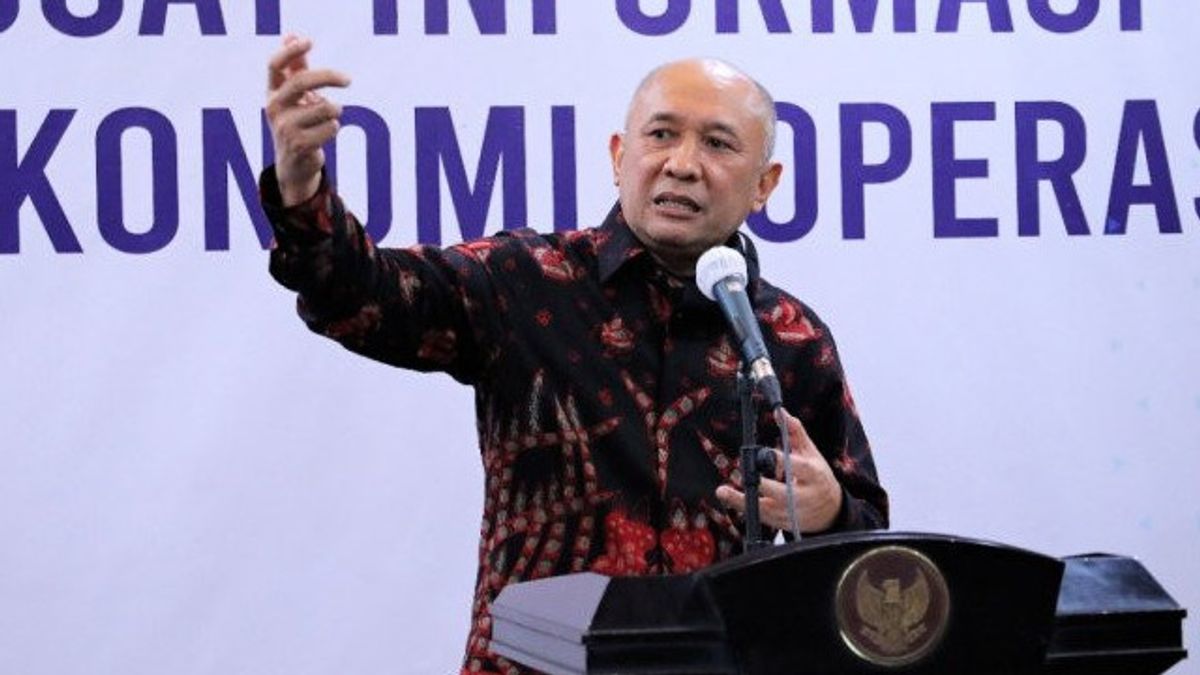JAKARTA - Minister of Cooperatives and SMEs Teten Masduki stated that the Indonesian SME sector must first control the domestic market in order to be able to compete in the global market.
“ SMEs in China that have entered the global market, they have also taken control of their domestic market. We must do that, and it must be our strategy in the future," he said at the inauguration ceremony of the Central Executive Board (DPP) of the Indonesian Preemptive and Crafts Industry Association (Asmindo) for the 2022-2027 term in Jakarta, quoted from Antara, Wednesday, September 28.
On this occasion, Teten specifically wants the domestic furniture industry to be dominant in local markets as well as be able to control the global market by utilizing import substitution policies.
Currently, the government is said to continue to strengthen the domestic product market by setting 40 percent of state spending to absorb Micro, Small and Medium Enterprises (MSMEs) products. In fact, continued the Coordinating Minister, President Joko Widodo wants an absorption rate of up to 100 percent.
“ If the 100 percent policy of absorbing local products is implemented, the performance of Indonesian MSMEs will be stronger, including the import substitution policy. Moreover, the procedure for entering the LKPP e-catalog (Government Procurement Policy Institute) and regional catalogs has been made easier from 8 procedures to 2 procedures only," he said.
Furthermore, he emphasized that e-catalogs are not controlled by large businesses. Therefore, restrictions are needed, such as shopping worth Rp. 100 million and below, it must be from MSMEs.
Government spending is also considered in the form of quality MSME products. To achieve this goal, he encourages partnerships between large businesses and MSMEs, one of which is by providing components for large industries of around 40-50 percent supplied by MSMEs.
Large businesses can focus on conducting research and developing raw materials to marketing, while the production process partners with MSMEs.
The rules related to partnerships have also been regulated in the Job Creation Act. < For large businesses that carry out partnerships, there are tax incentives. The MSMEs are excluded from the rules regarding labor wages," said the Coordinating Minister.
The English, Chinese, Japanese, Arabic, and French versions are automatically generated by the AI. So there may still be inaccuracies in translating, please always see Indonesian as our main language. (system supported by DigitalSiber.id)
Tags les plus populaires
#Prabowo Subianto #Nouvel An #accident d’avion #Hasto Kristiyanto #nataru #squid game 2Populaire
03 Januari 2025, 10:38
03 Januari 2025, 09:36













